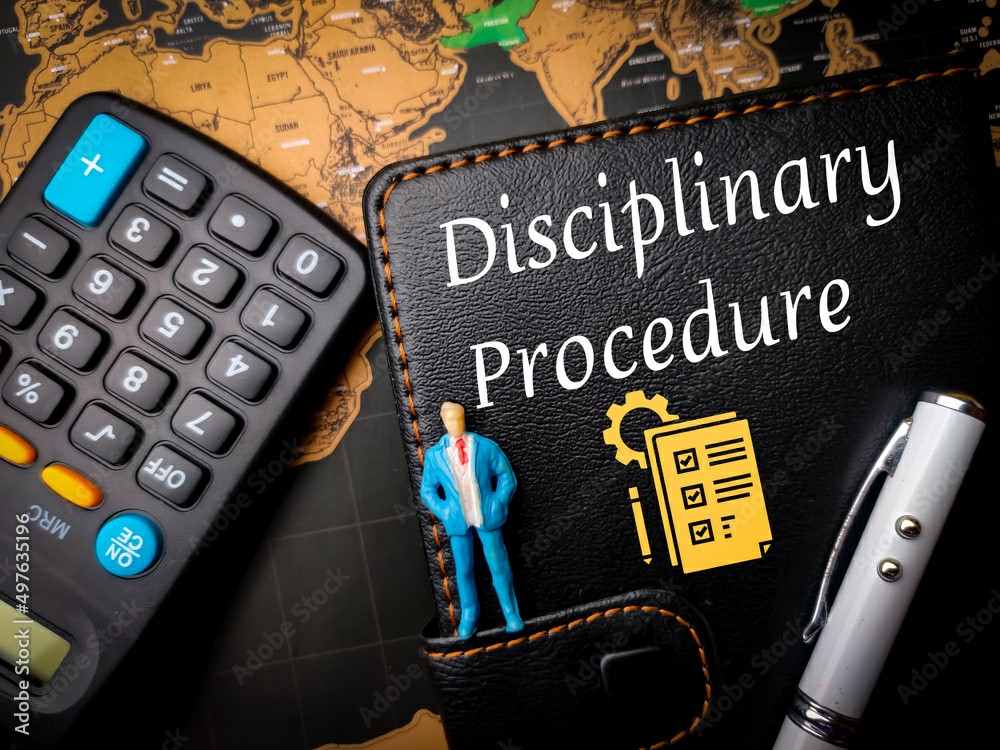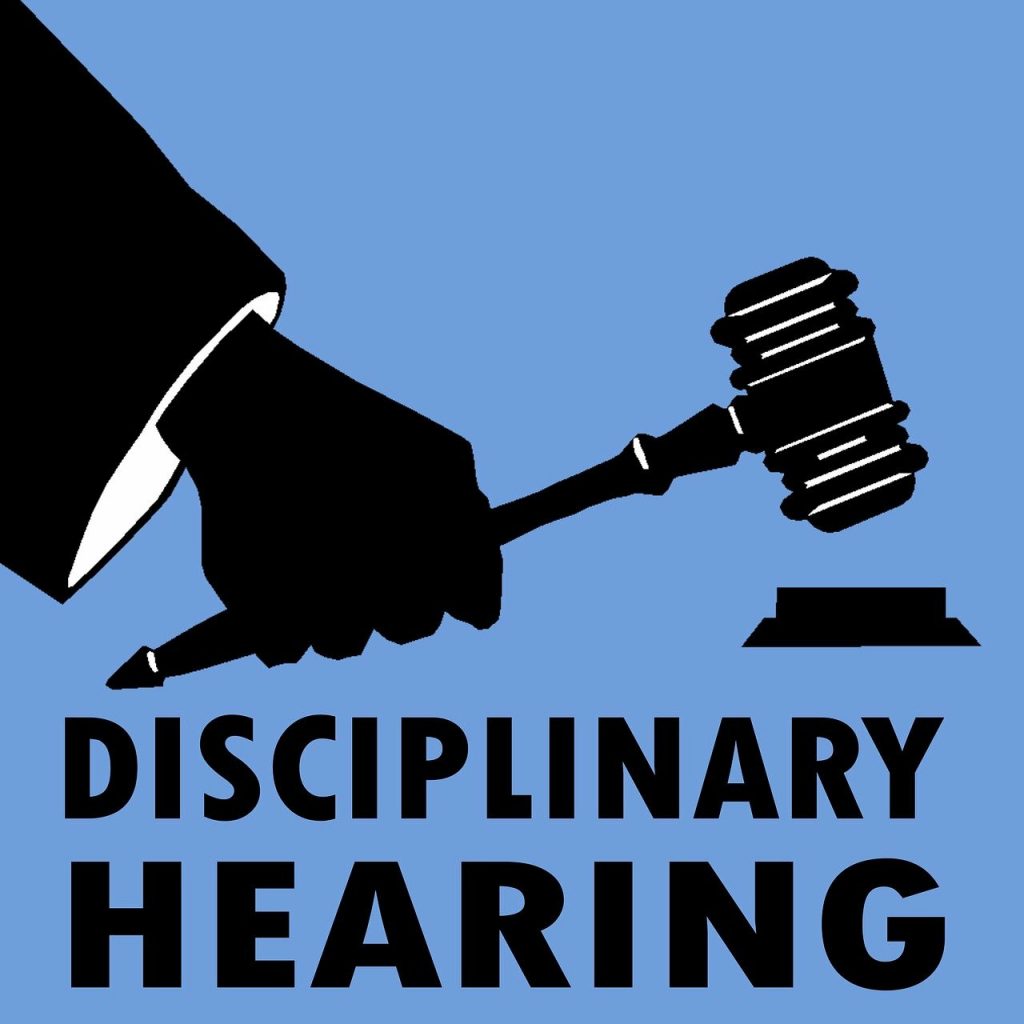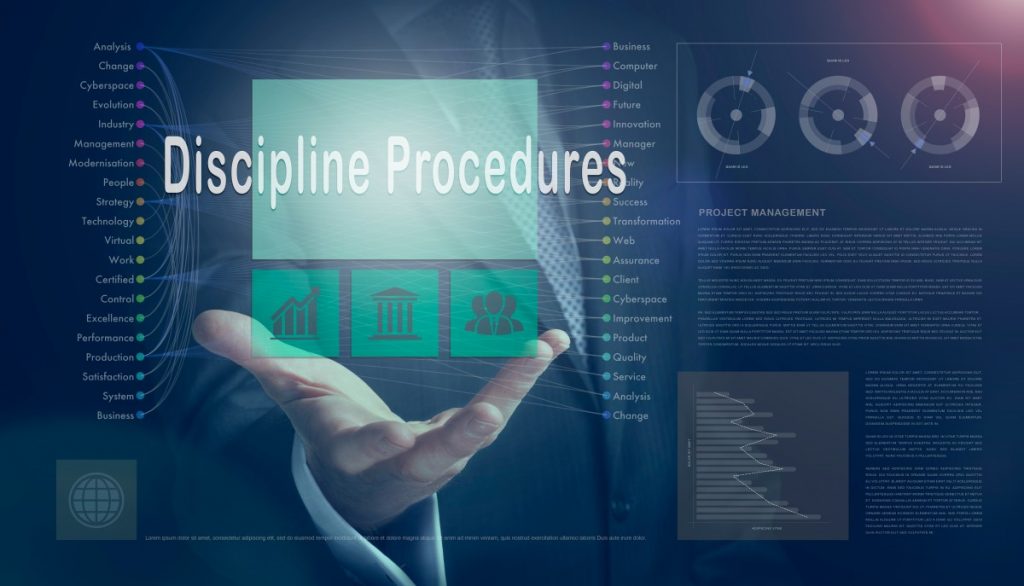
Disciplinary Matters at Work
Introduction to Disciplinary Matters at Work

As an experienced employment lawyer, I can’t stress enough the significance of understanding disciplinary matters at work. In my line of work, I’ve observed that having a solid grasp of these issues isn’t just about compliance – it’s about fostering a harmonious and productive working environment.
Let’s take a brief look at why this merits your attention:
Upholding standards: Disciplinary procedures ensure everyone adheres to company standards. This guarantees consistency in how we handle issues, leading to a better workplace.
Encouraging productivity: Proper disciplinary actions can nip potential issues in the bud. By doing so, we maintain a productive environment where everyone can focus on their tasks without unnecessary distractions.
Legal compliance: Of course, understanding disciplinary matters at work helps to stay within the law. You protect your company from potential legal pitfalls, saving not just money but also your reputation.
What Are Disciplinary Matters in Employment?
Disciplinary matters are instances that require corrective action within the workplace. However, the term is broader than it may initially appear and covers the following areas most commonly:
Misconduct: This could range from minor infractions like consistently arriving late to more serious issues such as bullying or harassment.
Poor performance: This refers to an employee not meeting their job requirements. It’s crucial to distinguish between an inability to perform and a refusal to do so.
Absenteeism: When an employee is consistently absent without good reason, it disrupts workflow and impacts productivity.
As we navigate these matters, I encourage you to adopt a broad view. It’s not just about rules and punishment. Instead, think of it as a way to guide employees back onto the right path. We aim to create a workplace where everyone feels respected and valued.
Remember, fairness is key in all disciplinary matters at work. We’re not only creating an environment conducive to productivity, but we’re also respecting the rights of all employees. As we move forward in our discussion, we’ll tackle how to construct effective disciplinary procedures.
The Importance of a Disciplinary Procedure
Clear and fair disciplinary procedure matter. These policies aren’t just arbitrary rules; they’re integral to our business operations. Here’s why:
Setting Expectations: A well-defined procedure establishes what’s expected from each team member. It lays the foundation for mutual respect and accountability.
Ensuring Fairness: A good procedure is impartial and just. It assures employees that any issues will be addressed in a fair and consistent manner.
Beyond these practical benefits, there are crucial legal implications. In the absence of a well-defined procedure, employers could face serious legal consequences. Employment law in the UK places a high emphasis on fair disciplinary procedures. Falling foul of this can result in significant penalties and damage to your company’s reputation.
As you can see, there’s a lot riding on your disciplinary procedures. It’s not just about managing employee behaviour; it’s about fostering trust, promoting fairness and staying within the law. As we delve deeper into the topic, we’ll examine how to develop these procedures to ensure they do all this.
Creating a Disciplinary Procedure: Key Elements
As we move forward, let’s focus on how to create an effective disciplinary procedure. Here are some key elements to consider:
Consistency: It’s vital that the procedure applies to everyone. No one should feel targeted or excluded. This fosters trust within your team.
Fairness: Impartiality is crucial. A fair procedure promotes a respectful and harmonious workplace where everyone feels valued.
Clarity: Ensure your procedure is clear and easy to understand. Ambiguity can lead to misunderstandings and disputes, which we want to avoid.
An effective disciplinary procedure is more than just a set of rules. It’s a tool to guide behaviour, establish norms and protect both the employer and employee.
Remember, the goal is not to punish, but to correct and improve. With this perspective, your disciplinary procedures can become a powerful tool for maintaining a productive and harmonious workplace.
Navigating the complexities of employment law might feel daunting, but rest assured, you’re not alone in this. As we delve deeper into the topic, we’ll shed light on the stages of a disciplinary process, ensuring you’re fully equipped to handle these matters with confidence and expertise.
The Stages of a Disciplinary Process
The disciplinary process may seem daunting, but it can be broken down into manageable stages. This structured approach ensures fairness and transparency. Here are the key steps:
Warnings: Start with informal and formal warnings. This alerts the employee to their misconduct, allowing for self-correction.
Hearings: If the issue persists, a disciplinary hearing is conducted. Here, the employee can present their side of the story.
Appeals: Should the employee disagree with the disciplinary decision, they have the right to appeal.
Remember, each stage should be clearly documented. Not only does this help avoid confusion, but it also protects you legally.
The disciplinary process isn’t just about reprimanding wrongdoings. Rather, it’s a structured system aimed at rectifying issues while ensuring the employee’s rights are upheld. By walking through this process with empathy and fairness, we can transform challenges into opportunities for growth and improvement.
In the coming sections, we’ll tackle the legal obligations surrounding disciplinary matters and the role of the ACAS Code.
Legal Obligations and the ACAS Code
Understanding your legal obligations is paramount when handling disciplinary matters at work. Let’s explore some key points:
Legal Compliance: You must adhere to employment laws. These protect both the employer and the employee, fostering a fair and respectful workplace.
ACAS Code: The Advisory, Conciliation and Arbitration Service (ACAS) Code of Practice provides clear guidance on handling disciplinary and grievance procedures. Adhering to it isn’t just good practice, it’s essential to avoid legal complications.
Being aware of your legal obligations and following the ACAS Code ensures you’re treating employees fairly and legally. This doesn’t just protect you from potential legal issues, it also promotes a culture of respect within your team.
Now, we’ve just scratched the surface here. In reality, these matters are complex and multifaceted. But fear not, as we journey further into the world of employment law, we’ll delve deeper into these topics. I’ll be with you every step of the way, offering expert guidance to help you navigate these intricacies with confidence.
The Role of Managers and Employers in Disciplinary Matters at Work
As a manager or employer, you play a pivotal role in handling disciplinary matters. Let’s highlight some key responsibilities:
Conducting Disciplinary Meetings: These should be handled professionally and empathetically. It’s important to be open, listen and be fair.
Communicating Effectively: Transparent communication is crucial. Ensure employees understand the disciplinary procedures and their rights.
Your actions set the tone for the entire process. A respectful and fair approach can help maintain a positive atmosphere, even when addressing challenging issues.
Keep in mind, it’s not just about correcting misbehaviour. Instead, it’s about guiding employees towards more productive behaviour. You have the power to transform a potentially negative situation into a catalyst for positive change.
Dealing with Grievances During the Disciplinary Process
Addressing grievances during the disciplinary process can be challenging, but it’s a vital aspect of maintaining fairness and respect. Let’s delve into this:
Recognizing Grievances: A grievance is a formal complaint by an employee. It could relate to their work, the workplace, or colleagues. Acknowledging these grievances is the first step to resolution.
Handling Grievances Effectively: This involves investigating the issue, hearing the employee’s side, and deciding on the appropriate action. The key here is to handle grievances impartially and promptly.
Remember, the aim is to resolve issues, not exacerbate them. Handling grievances effectively ensures a healthy, respectful workplace where everyone feels heard.
Addressing grievances during the disciplinary process might seem like a juggling act. But, with empathy and fairness, you can successfully navigate this delicate balance. It’s about upholding the rights of all employees while maintaining harmony within the team.
Dismissals: The Last Resort
Dismissal is a tough decision, and one that should only be considered as a last resort. Here’s what to keep in mind:
When to Consider Dismissal: This should only come into play in cases of gross misconduct or when all other avenues have been explored and the employee’s behaviour or performance hasn’t improved.
Understanding ‘Fair’ Dismissal: UK employment law stipulates that dismissals must be fair. This involves having a valid reason for the dismissal and following the correct procedure.
No one enjoys discussing dismissals, but sometimes it’s necessary for the overall wellbeing of your team and business. But remember, a fair and respectful approach is critical.
It’s vital to keep in mind that every situation is unique. Understanding and applying employment law correctly is crucial to ensure a fair and respectful dismissal process, if it comes to that.
Mitigating Risks and Avoiding Legal Pitfalls
The world of employment law can be complex, but with careful navigation, you can mitigate risks and avoid legal pitfalls. Let’s delve into this:
Document Everything: Make sure to document all stages of the disciplinary process. This protects you legally and promotes transparency.
Follow the Procedure: Stick to your established disciplinary procedure and the ACAS Code. Deviating from these could lead to legal complications.
While these guidelines can help you navigate disciplinary matters, remember that every situation is unique. Stay open to learning and adapt your approach as needed.
Navigating employment law doesn’t have to feel like navigating a minefield. With a clear understanding and fair approach, you can handle disciplinary matters confidently and effectively.
Remember, the aim is to foster a respectful, productive workplace. As we continue exploring this subject, we’ll focus on training and support for handling disciplinary matters. It may seem daunting now, but I assure you, with the right knowledge and tools, you can become an expert in managing these issues.
Training and Support for Handling Disciplinary Matters
Training is essential for effectively handling disciplinary matters. Let’s explore this in depth:
Importance of Training: It equips managers and employers with the necessary skills to handle disciplinary issues. This includes communication skills, empathy and a solid understanding of the procedures.
Seeking Legal Advice: This can be beneficial in complex cases. It helps ensure you’re complying with employment law, further protecting your business from legal pitfalls.
Remember, handling disciplinary matters is a skill. And like any skill, it can be learned and improved with proper training and support.
Training not only empowers you to handle these matters more effectively, but it also promotes a culture of fairness and respect within your team. In complex cases, seeking legal advice ensures you’re on the right track, protecting your business and promoting fairness.
We’ve covered a lot in this journey through disciplinary matters. As we wrap things up in the coming sections, we’ll discuss some final thoughts and tips for success.
Final Thoughts and Tips for Success
As we reach the end of our journey, here are some final thoughts and tips for successfully managing disciplinary matters:
Patience and Understanding: Dealing with disciplinary issues requires patience and understanding. Remember, the goal is improvement, not punishment.
Open Communication: Encourage a culture of open and respectful communication. This fosters trust and aids in the early resolution of issues.
Stay Informed: Keep up-to-date with changes in employment law. It’s an evolving field and staying informed is essential to ensure compliance.
Managing disciplinary matters at work can be challenging. But remember, with the right approach, these challenges can become opportunities for growth and improvement.
At the end of the day, it’s about creating a workplace that is fair, respectful, and productive. By embracing this mindset, you can navigate disciplinary matters confidently and effectively.
I hope this guide has been helpful in shedding light on the complexities of disciplinary matters in employment. Remember, it’s a journey and every journey begins with a single step.
Call John Bloor at EBS Law on 01625 87 4400 if you are an employer and need free Employment Law Advice.

